Strong decentralization and simplification of administrative procedures
Mr. Phan Van Mai said that the National Assembly Standing Committee has directed the reception, revision and completion of the draft Law on Management and Investment of State Capital in Enterprises based on the opinions of National Assembly deputies, National Assembly delegations, and relevant agencies. During the revision process, the agencies have strictly followed the direction of the General Secretary and the Chairman of the National Assembly on innovation in law-making thinking, and at the same time implemented Regulation No. 178-QD/TW dated June 27, 2024 of the Politburo on controlling power, preventing corruption and negativity in legislative work. The draft law is built in accordance with the 2013 Constitution, fully institutionalizing the viewpoints and policies of the Party and State on innovation, restructuring, and development of state-owned enterprises.
Mr. Mai said that the draft has timely concretized Resolution No. 57-NQ/TW on science and technology development, innovation, Resolution No. 18-NQ/TW on restructuring and innovating state-owned enterprises, and Conclusion No. 127-KL/TW on continuing to promote restructuring of state-owned enterprises. These contents are clearly stated in the articles and clauses of the draft, ensuring a synchronous legal framework, meeting the requirements of enterprise management and development in the new context.
After receiving comments, the draft law was streamlined from 62 articles to 59 articles, divided into 8 chapters, 3 articles less than the version presented at the 8th Session. The review process was carried out carefully, absorbing the maximum opinions of National Assembly deputies, to ensure that the draft law is not only suitable for practice but also highly feasible, creating a solid foundation for state capital management.
One of the focuses of the draft law is to promote decentralization, delegation of power and reduction of administrative procedures to increase the initiative of enterprises. Chairman Phan Van Mai said that the National Assembly Standing Committee has directed the review and clearly defined the tasks and powers of the Government, the Board of Members, the Chairman of the company at enterprises in which the State holds 100% of the charter capital, as well as the representative of the State capital and the capital of the enterprise.
The rectification process has cut about 30% of administrative procedures, equivalent to 7/24 procedures, and reduced 50% of the number of procedures that must be submitted to the Prime Minister, transferred to the representative agency of the owner or enterprise. This helps to simplify the process, reduce the time waiting for approval, and create conditions for enterprises to operate more flexibly and effectively. Decentralization not only meets management requirements but also promotes enterprise development according to market mechanisms, equality and competition according to the law.
Many specific contents are received and edited.
Regarding the subjects of application, some National Assembly deputies proposed to expand the scope to manage enterprises with direct state capital investment of less than 50% of charter capital. The National Assembly Standing Committee has accepted opinions and added regulations on representatives of state capital invested in joint stock companies and limited liability companies with two or more members, ensuring coverage of enterprises with 50% state capital or less. The management principle is clearly defined: where there is state capital, there must be management with appropriate measures and levels, in order to protect state interests without deeply interfering in production and business activities.
Regarding the scope of state capital investment, many delegates proposed to review it to be consistent with the XIII Congress Documents and Resolution No. 12-NQ/TW, focusing on key, essential areas, or areas where private enterprises do not invest. The National Assembly Standing Committee has directed the adjustment of the scope of investment, clearly defining priority areas, including: providing essential public products and services; serving national defense and security; operating in key areas of national defense and security; natural monopoly areas; developing science and technology, innovation, digital transformation; large investments in key national infrastructure projects; and key, essential areas of the economy. This regulation institutionalizes the Party's policy, ensuring that state capital is used effectively, creating development momentum for industries and the economy.
Regarding business strategies and annual business plans, some delegates proposed clarifying the approval authority and creating more initiative for businesses. The National Assembly Standing Committee has accepted and revised Article 17, stipulating that the Board of Members and the Chairman of the company decide to issue and adjust the business strategy and annual business plan, based on the socio-economic development plan and targets assigned by the owner's representative agency. The Government is assigned to provide detailed regulations to help overcome delays in approving strategies and plans, creating conditions for businesses to operate flexibly.
Regarding capital mobilization and lending, delegates proposed to increase the initiative of enterprises but still need a strict monitoring mechanism. The National Assembly Standing Committee has accepted and revised Article 18, allowing enterprises to guarantee or lend capital to subsidiaries, with conditions specified in detail by the Government. This regulation institutionalizes the Party's viewpoint, shifting from pre-control to post-control, increasing autonomy and self-responsibility, helping subsidiaries access reasonable capital sources, creating development resources.
Regarding investment activities, some opinions said that the regulations restricting real estate business and requiring permission before exploiting real estate were inappropriate, hindering the initiative of enterprises. The National Assembly Standing Committee accepted, did not regulate investment restrictions in the draft and added Article 22, allowing enterprises to lease, hire-purchase, mortgage, and pledge assets, creating conditions for autonomy in production and business.
Regarding salary, remuneration and bonus policies, delegates proposed increasing decentralization for enterprises. The draft stipulates that the Board of Members and the Chairman of the company decide on salary policies, including the direct owner's representative and the controller, to increase initiative and conform to the market mechanism.
Regarding the distribution of after-tax profits, delegates proposed allowing the use of profits to handle issues arising before setting up a fund and paying the state budget. The National Assembly Standing Committee has accepted and revised Clause 4, Article 25, stipulating that after-tax profits are used to distribute profits to capital contributors, offset losses from previous years, handle expenses according to specialized laws, costs of failed investments in special projects, high risks, costs of innovation, failed innovation projects, and costs of performing political tasks. The remaining amount is set up in a fund and paid to the budget, except for cases of supplementing charter capital or investing in projects according to Government regulations, ensuring flexibility and reducing administrative procedures.
Regarding capital preservation and development, delegates proposed to clarify the content and control mechanism. The National Assembly Standing Committee has accepted and completed the regulations on capital preservation and development, inheriting Law 69, ensuring substance and consistency with the policy of overall enterprise assessment, including economic efficiency and social responsibility.
Regarding supervision and inspection, the draft has absorbed and revised the provisions from Article 43 to Article 49, according to Conclusion No. 134-KL/TW dated March 28, 2025 of the Politburo on the arrangement of the inspection agency system. The draft only stipulates the inspection authority of the Government and the Prime Minister, not for ministries, ministerial-level agencies, or owner representative agencies, and is implemented in accordance with the law on inspection, ensuring streamlining and efficiency.
Regarding the assessment and classification of enterprises, the draft has revised the regulations on assessment based on overall performance, considering political tasks, national defense, security, testing new technologies, new business models, and the impact of objective factors. Enterprises performing social security tasks are assessed based on the level of completion of state-assigned tasks and social responsibilities.
Source: https://thoibaonganhang.vn/doi-moi-quan-ly-von-nha-nuoc-huong-toi-khung-phap-ly-minh-bach-va-hieu-qua-164088.html


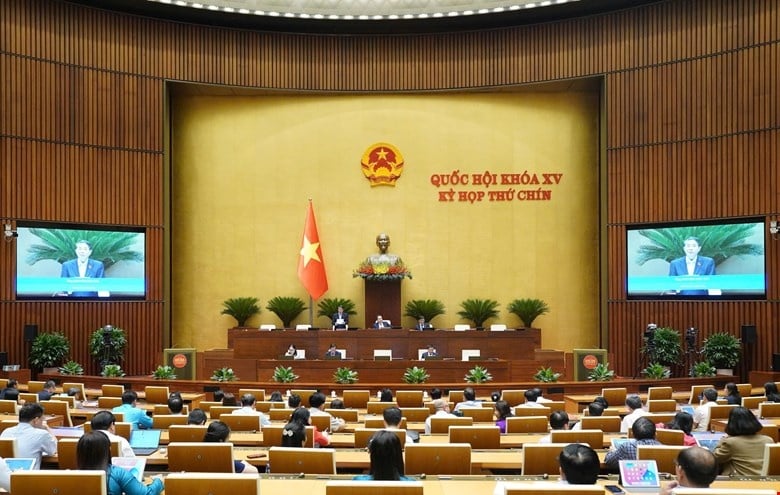
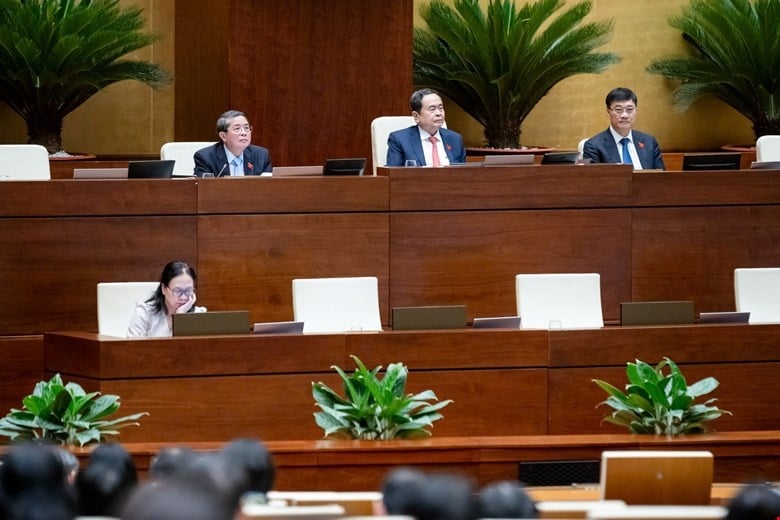



![[Photo] Readers line up to visit the photo exhibition and receive a special publication commemorating the 135th birthday of President Ho Chi Minh at Nhan Dan Newspaper](https://vphoto.vietnam.vn/thumb/1200x675/vietnam/resource/IMAGE/2025/5/17/85b3197fc6bd43e6a9ee4db15101005b)
![[Photo] Prime Minister Pham Minh Chinh chairs meeting on science and technology development](https://vphoto.vietnam.vn/thumb/1200x675/vietnam/resource/IMAGE/2025/5/17/ae80dd74c384439789b12013c738a045)
![[Photo] More than 17,000 candidates participate in the 2025 SPT Competency Assessment Test of Hanoi National University of Education](https://vphoto.vietnam.vn/thumb/1200x675/vietnam/resource/IMAGE/2025/5/17/e538d9a1636c407cbb211b314e6303fd)














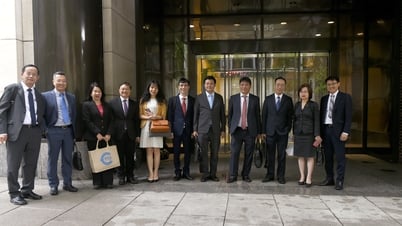


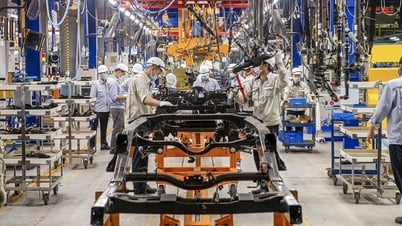
![[Photo] Nearly 3,000 students moved by stories about soldiers](https://vphoto.vietnam.vn/thumb/1200x675/vietnam/resource/IMAGE/2025/5/17/21da57c8241e42438b423eaa37215e0e)






















































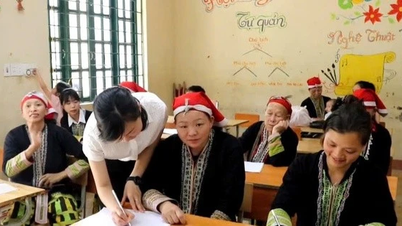





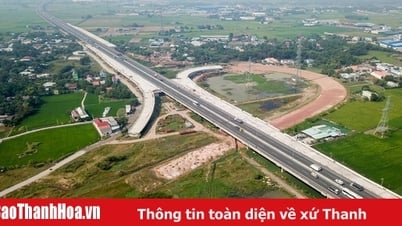











Comment (0)